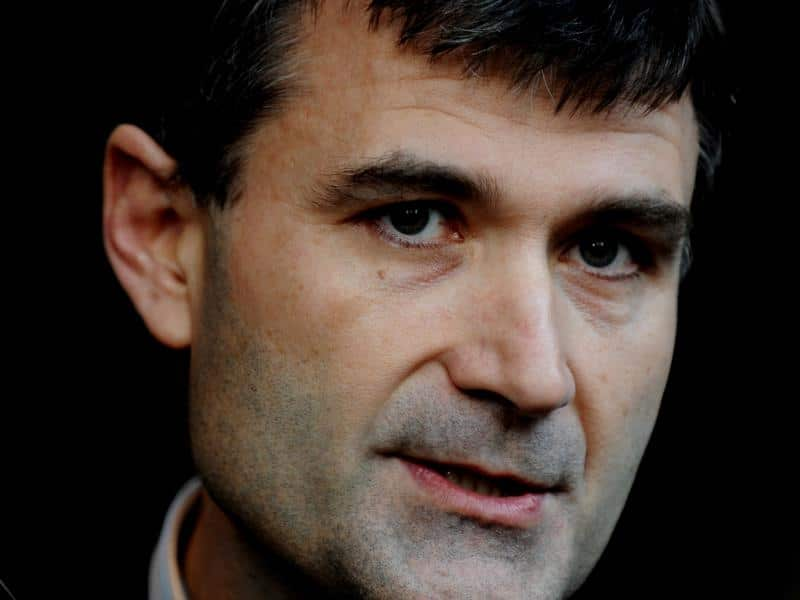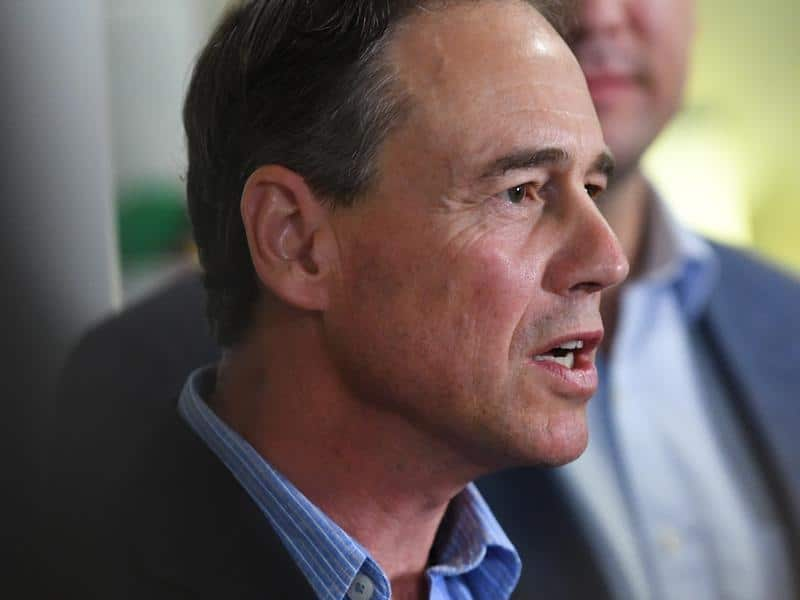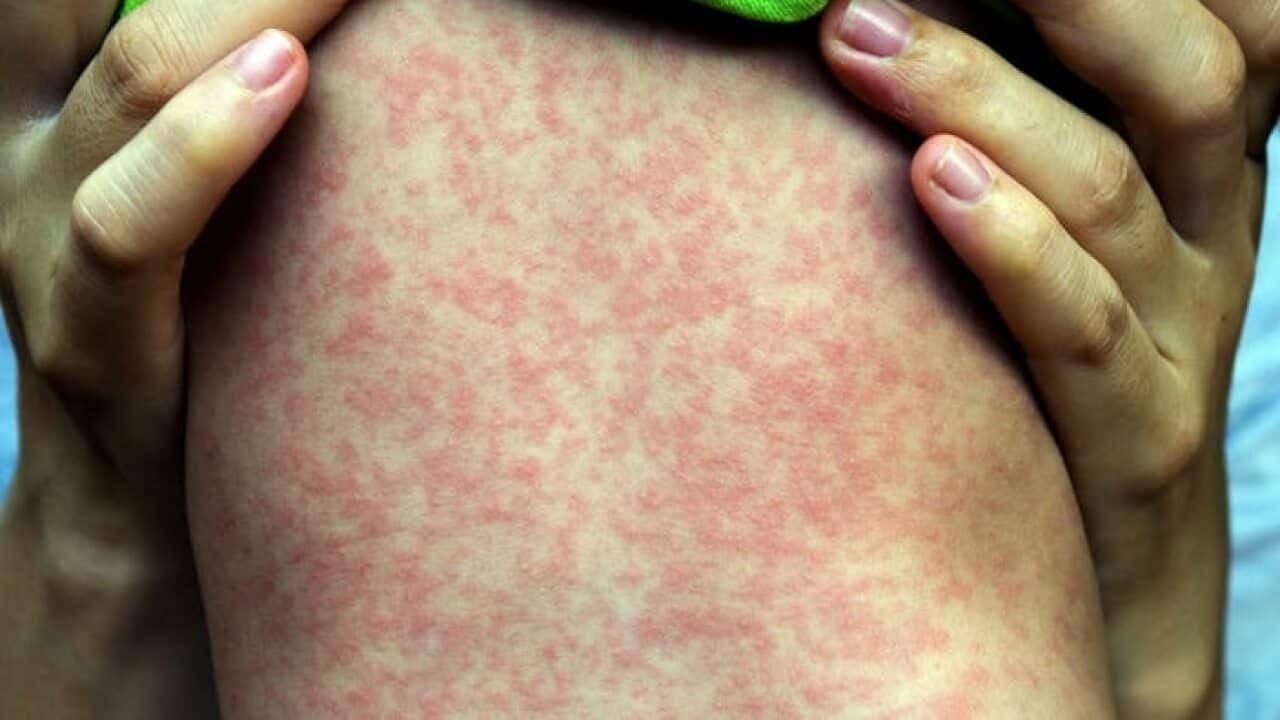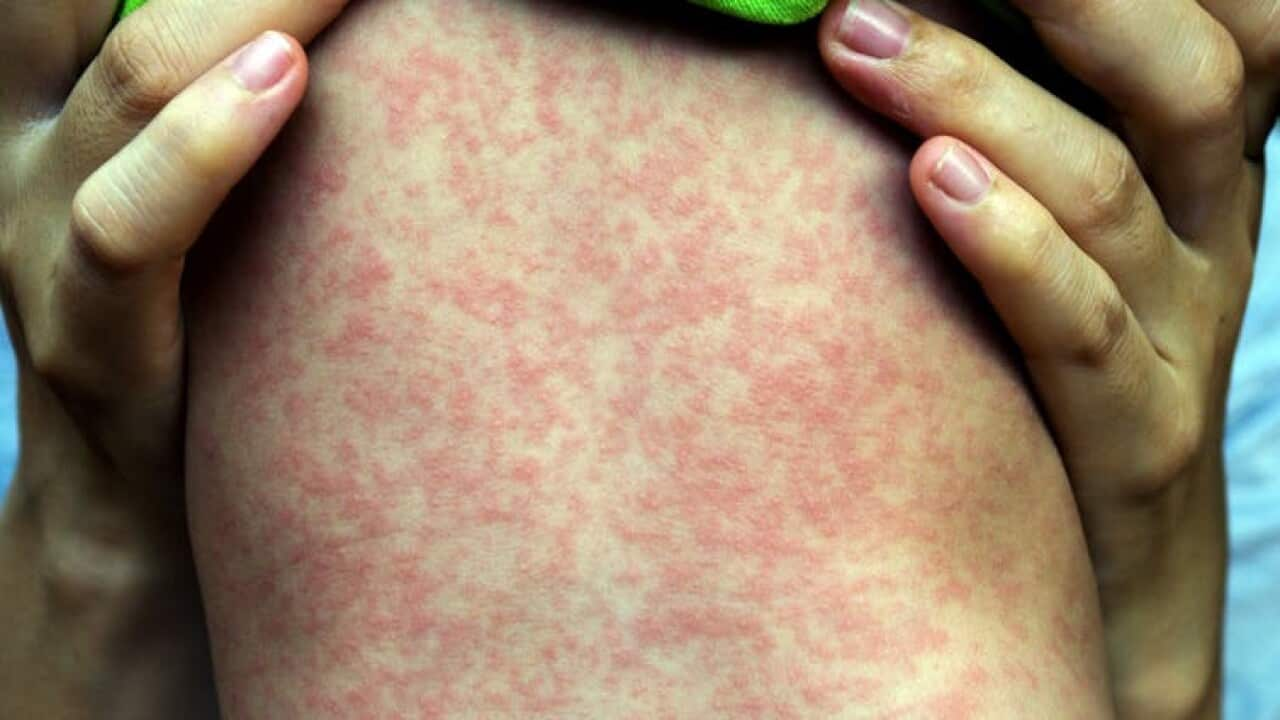Australians travelling overseas should check they have been vaccinated against measles regardless of their destination as health experts warn the highly contagious disease could take hold here.
The 84th case for the year was confirmed late on Monday after an unvaccinated international backpacker caught the disease in a Melbourne hostel.
The man in his 30s then travelled to several popular tourist locations in Sydney, including the Opera House, before catching the XPT train to Brisbane and staying at a Highgate Hill hostel.
NSW Health's Dr Jeremy McAnulty says a dramatic spike in cases in Australia is a serious concern.
There have been 83 known measles cases this year compared with 103 for all of last year and 81 for 2017.
"We are really worried it could take hold here," Dr McAnulty told AAP.

Dr Jeremy McAnulty says the spike in measles in Australia is serious. Source: AAP
The spate of cases has been caused by unvaccinated travellers bringing it back to Australia and unknowingly spreading the disease, he says.
Even for Australians not travelling to countries already hit by a large outbreak, like the Philippines, there's a chance of exposure in airports and on planes.
"For example, people travelling to London and stopping off in Dubai are exposed to a mass of people from around the world," he said.
After being exposed to a person carrying measles it can take up to 10 days to see symptoms, while others can see a rash within just four days.
Despite not showing symptoms people can be infectious soon after exposure, the Health Protection Director said, while reminding people that the best prevention is immunisation.
It was essential that people find out if they have had two doses of the vaccine and anyone who's unsure can check on the Australian Immunisation Register, which has records from 1996 onwards.
Anyone unsure if they were immunised before this time can visit the doctor with free vaccinations available for people born in 1965 and after.
For parents travelling with babies, they can receive immunisation at nine months, rather then 12 months, to protect them during their travels.

Federal Health Minister Greg Hunt. Source: AAP
Health Minister Greg Hunt said 95 per cent of the community needed to be vaccinated to achieve immunity and prevent the spread of the disease.
He said 93.5 per cent of two-year-old children had received two doses of the vaccine making them protected against it.
"Immunisation saves lives. The measles vaccine is very effective at protecting lives," Mr Hunt said in a statement.
Immunisation saves lives Greg Hunt
It comes as NSW Health issued a fresh measles alert on Sunday after two unvaccinated Australians caught the disease while travelling in Asia.
The two travellers, in their 20s, likely acquired the infection while in the Philippines in mid-March and were unwell before landing on the Gold Coast on March 30, NSW Health said.
They visited shops in Pottsville and Cabarita in NSW's northern rivers region on April 2 before seeking medical treatment in Murwillumbah and Tweed Hospital the following day.
Dr McAnulty said anyone concerned they might be infected should report it directly to a doctor rather than potentially infecting others in waiting rooms.
The World Health Organisation website reports so far this year, the Philippines has reported 23,000 cases with 333 deaths - already more than all of last year.
Australia, Cambodia, China, Hong Kong SAR, New Zealand, the Republic of Korea, Singapore and Vietnam have all recorded measles cases this year.
WHO Western Pacific Regional Director Dr Takeshi Kasai said measles spreads like wildfire.
"It is the most contagious human disease, and it's very good at seeking out and spreading among even small groups of people who are not immune," Dr Kasai said.


